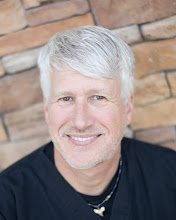Here is some good news for individuals with kids in need of dental treatment. I was happy to learn that WHO has authorized these materials as "essential". For those of us who are lucky enough to live in areas where we can receive state of the art care, these materials are easily available and make a tremendous difference. However, for those who live in areas where care is not so easily found, have access to these materials can make a real difference. Here is the info courtesy of CareQuest:
The World Health Organization (WHO) published the new edition of its Model Lists of Essential Medicines (EML) and Essential Medicines for Children on Oct. 1, 2021, in which it recommended the establishment of a new section for children and adult dental preparation. The WHO's Expert Committee added three new oral health medicines — fluoride toothpaste, silver diamine fluoride, and glass ionomer cement — to the lists aimed at addressing global health priorities. These medicines provide the greatest benefits, according to WHO, and should be available and affordable for all.
These medicines are central to minimally invasive care, a care philosophy of decreasing and even eliminating the need for a dental drill and local anesthetic. They empower more oral health providers to treat tooth decay because they don’t require advanced skills such as drilling or numbing. This approach to care for tooth decay improves access, outcomes, and experience for many patients.
Jeremy Horst Keeper, DDS, PhD, director of clinical innovation at CareQuest Innovation Partners, a subsidiary of CareQuest Institute for Oral Health, led the proposal for glass ionomer cement to be a WHO Essential Medicine. He applauded the committee for their acknowledgement of oral health care's impact on the global public health problem and addition of these medicines:
"This is a huge milestone in ensuring that billions of people will gain access to simple, non-invasive treatments for the most common disease in the world. The WHO has recognized that these three medicines, and not fillings, are the first-line treatment for tooth decay.”
Keeper also explained why this shift in treatment is so important for children.
“Traditional dental procedures can be difficult for children, so providers often use sedation and anesthesia, which is expensive and can have adverse health effects on the overall body. Adding silver diamine fluoride and glass ionomer cement to the WHO EML for both children and adults eases the management of disease for all, but especially kids. We thank the WHO for taking this step toward a more person-centric and accessible approach to oral health care and helping millions of children in the process. Oral health care is health care. We are encouraged by this news and must continue to improve access to dental medicines and support additional innovations that allow us to improve health outcomes for all.”





Thank you for taking the time to write this informative post on your blog. I'd like to congratulate you on your work. Have a great rest of your day and keep posting.
ReplyDeleteDentist Philadelphia